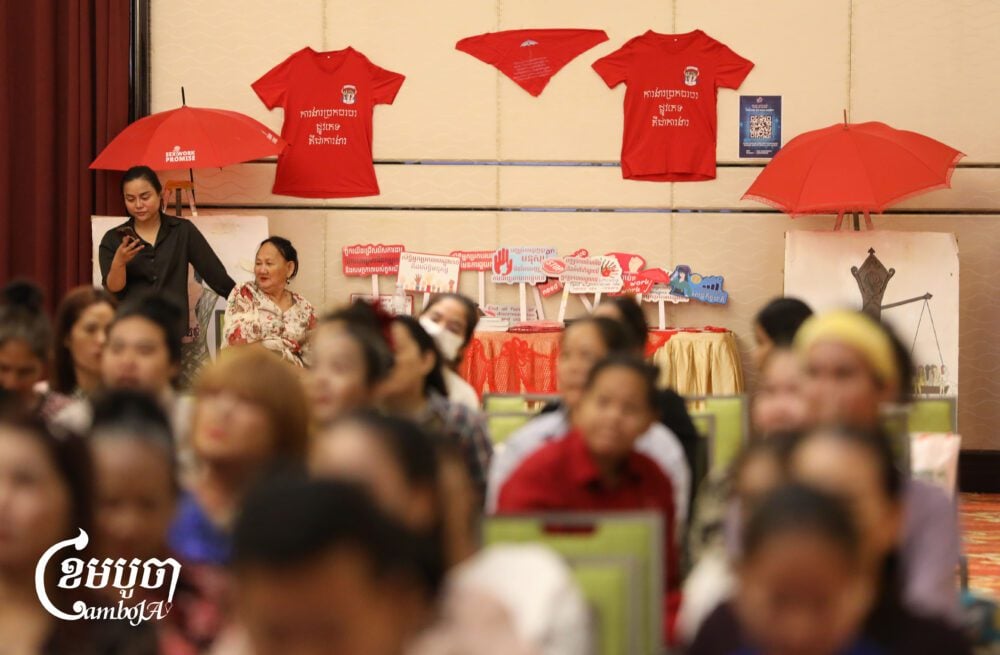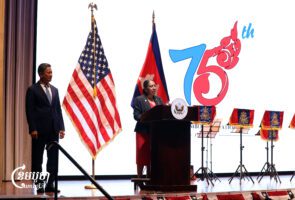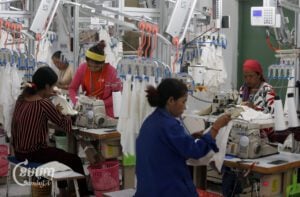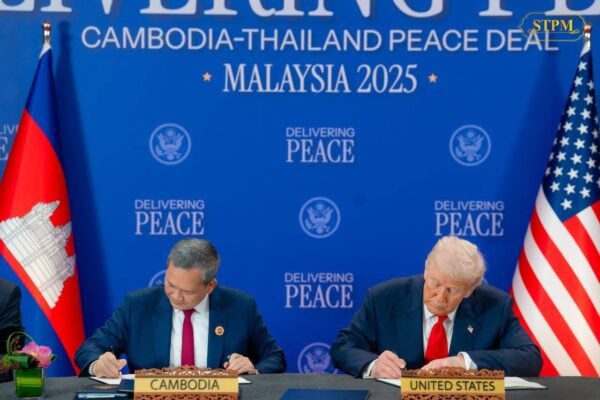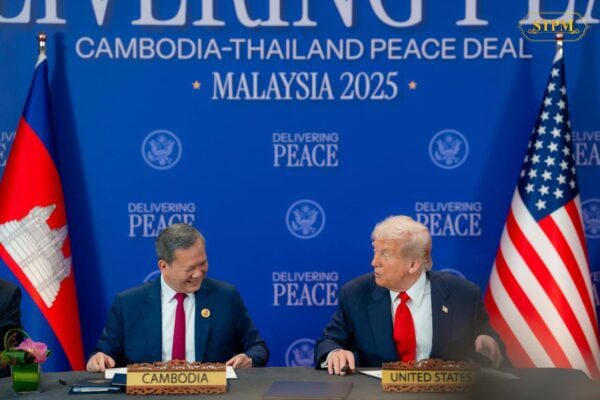Garment, footwear and travel goods sector workers are concerned that the 49 percent increase in US tariffs will put them at risk of job losses, poor working conditions and increased exploitation, while their minimum wage cannot keep up with inflation.
A forum, titled “A unified voice for economic justice for both formal and informal workers”, was organized by the Workers’ Information Center on June 27 to raise concerns about the labor situation, and the impact of the tax hike on workers in the sectors.
Sot Sophorng, a research officer at the center, said the announcement of the high tax imposition by the U.S was shocking and worrying.
On April 2, the U.S announced import tariff hikes on 160 countries, with Cambodia facing the highest tariffs in Southeast Asia.
According to the center’s report, which was presented at the forum, Sophorng said Trump’s measures will expose hundreds of thousands of Cambodian workers to harsh working conditions, increased exploitation, and their well-being, living conditions and future being jeopardized.
Cambodia exported garments, textiles, footwear, and travel goods worth $13.92 billion in 2024, up 23 percent from the previous year. As of 2024, some 1,555 factories and enterprises operated nationwide, employing nearly one million workers.
Long Sophat, 38, a factory worker in the Teuk Thla area, is worried that the tax rate will worsen working conditions, especially those with low skills. If the production chain is disrupted, low skill workers will be the first to lose their jobs.
Apart from supporting her family, she has bank debts, so losing her job would cause a serious problem.
“I am afraid my boss will invest in other countries and working conditions will worsen or result in the loss of job and income. I am responsible for my family, and I have bank debts,” Sophat said.
She also highlighted that salaries are not in line with market rates and rental, adding that the price of goods continues to rise. Thus, she urged the government and factory owners to raise workers’ salaries. Relevant ministries should also have a policy to determine market prices to stop businesses from increasing prices at their whim.
“Although the salary increased slightly by only $4, room rent grew by $5. The price of goods also increased. We have to pay for water and electricity. I request the government to negotiate [well] with the U.S on the tax issue so that factory owners will continue to invest here,” she said, hoping that the negotiations with the US will have positive results.
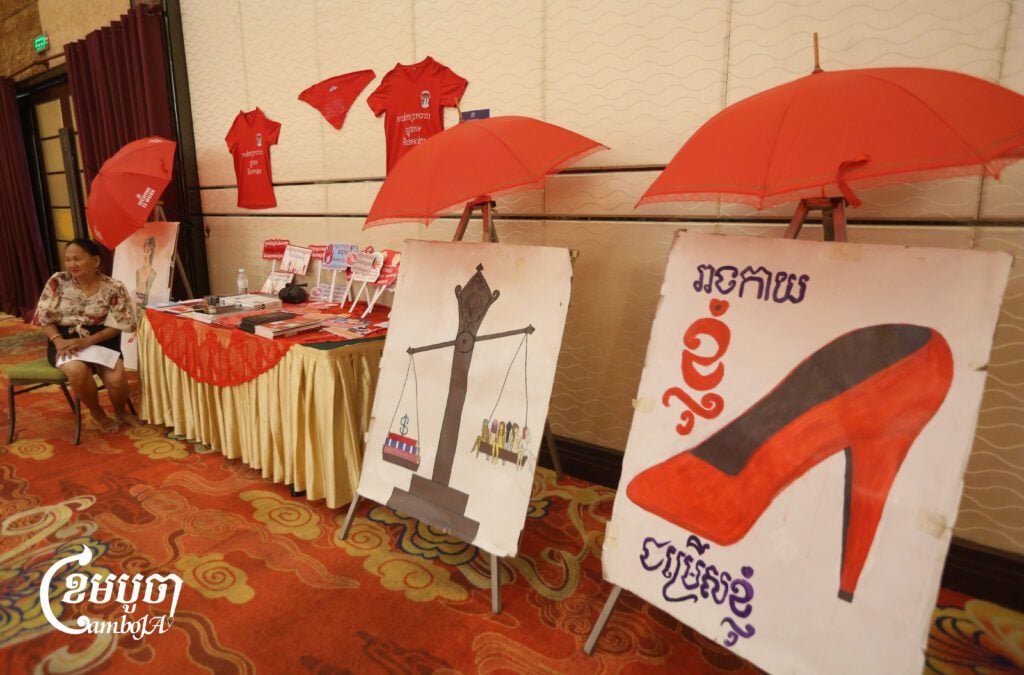
Meanwhile, Sophorng said many workers were not fully informed about the 49 percent tariff increase on Cambodia. Some learned about it through social media and from fellow workers.
Workers in a shoe factory in Prey Tea voiced their concern about the stability of their jobs after being informed by their employer that they supply the U.S market. They are worried of being suspended or the closure of the production line without notice. They fear not receiving adequate compensation or fair payment in accordance with labor laws, Sophorng said.
The minimum wage rises every year but it is not in proportion to inflation, housing rates, and water and electricity costs. She said if the negotiations fail, workers fear that they will fall deeper into debt.
Teng Mony, deputy director of the Labor Inspectorate of the Ministry of Labor and Vocational Training, said the setting of minimum wage involves many stakeholders, and the ministry cannot decide or set the minimum wage alone. In other words, he mentioned, the ministry cannot simply demand higher salary from the employer based on workers’ demands.
“There are three parties negotiating minimum wage. They study the wage according to a person’s expenses. If you say that one person supports a whole family, it is impossible,” Mony said.
Regarding the U.S tariff increase, Mony urged workers not to worry because the government is thinking about this issue, and so far no company has closed down due to the hike.
“The government is always thinking about the workers. There is no problem for now, so please don’t worry too much,” he said.
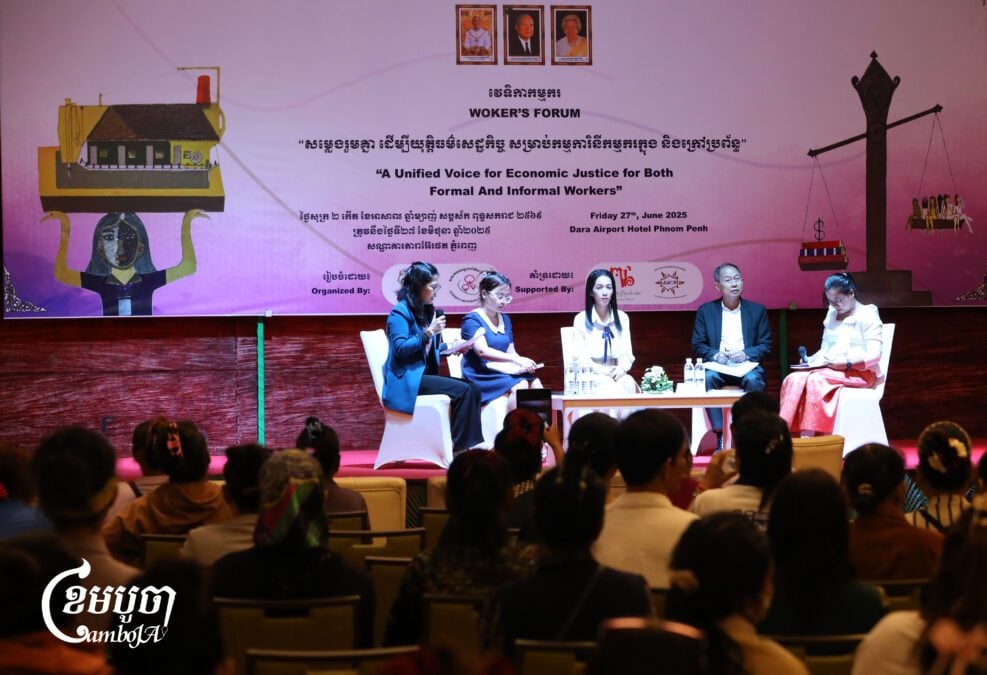
CENTRAL program manager Khun Tharo said there is long-term concern about exports in the garment sector, especially job stability of more than one million workers. If there is no positive result from the negotiations with the US Trade Representative (USTR), it will affect exports and economic growth.
“I understand that a delay in negotiations could occur. At this stage, no country that produces in this sector has reached a trade agreement with the US yet, but Vietnam may see better conditions than Cambodia,” Tharo said on his Facebook page.
In this situation, U.S buyers are waiting for the results of the negotiations to consider placing orders. For example, U.S company Nike has decided to reduce orders from China.
On June 25, Cambodian officials held a virtual meeting with the USTR to discuss trade and tariffs. Both sides reviewed progress from previous negotiations, proposed further steps, and reaffirmed their commitment to continue working closely for a mutually beneficial trade and investment partnership.
Cambodia will continue to cooperate closely with the U.S to achieve a mutually beneficial trade and investment relationship.
Pen Sovicheat, spokesperson of the Ministry of Commerce, declined to comment.
In the meantime, the Workers’ Information Center requested the US government to exempt import tariffs on goods from Cambodia. It also urged the government to expedite negotiations, resolve the issue to ensure job stability, and protect workers’ welfare by ensuring better working conditions.
In addition, workers asked the government to study the wages again to ensure it is in line with inflation and market prices to address the imbalance between income and expenditure.

